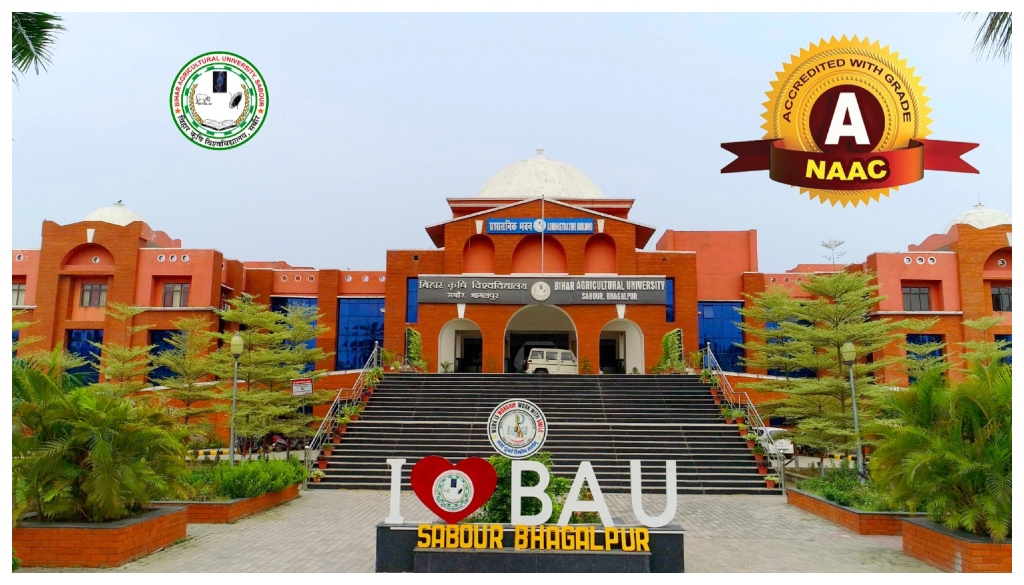
Bhagalpur/ Patna: Bihar Agricultural University (BAU), Sabour, has been awarded an ‘A’ grade by the National Assessment and Accreditation Council (NAAC), marking a major milestone in the institution’s journey and a moment of pride for the state. The announcement was made by Bihar’s Deputy Chief Minister and Agriculture Minister, Vijay Kumar Sinha, who hailed the recognition as a historic achievement not just for the university, but for Bihar’s standing in the field of higher education, research, and innovation.
The NAAC peer team visited the university from May 28 to 30, conducting a comprehensive evaluation of academic, administrative, research and extension-related activities. The university secured a CGPA of 3.08, placing it among the top NAAC-accredited agricultural universities in India—an accomplishment reached within just 15 years of its establishment.
“This success is the result of the collective determination and hard work of the university’s teachers, scientists, staff, students, and even farmers. It is proof that Bihar is now standing shoulder to shoulder with leading states in academic excellence,” said Sinha. He added that the accreditation reflects the tangible results of the state government’s special focus on education and agriculture through policy and investment.
The minister also noted that BAU’s progress is closely aligned with the vision of the National Education Policy (NEP) 2020. The university has overhauled its curriculum to embrace a multidisciplinary, skill-based, and innovation-oriented approach. The NAAC team commended its outcome-based education model, emphasis on experiential learning, and robust industry-academia collaboration.
Students at BAU benefit from academic flexibility, including the ability to choose interdisciplinary and elective courses, engage in early-stage research, and transfer credits—hallmarks of the NEP’s student-centric framework. A strong feedback mechanism involving alumni, educators, and planners ensures that curriculum and pedagogy remain responsive to stakeholder input.
Congratulating the university community, Sinha urged faculty and students to build on the achievement and make Bihar a leader in agricultural knowledge and innovation. “Let us turn this recognition into long-term success and help place Bihar firmly on the map of excellence in science and education,” he said.





